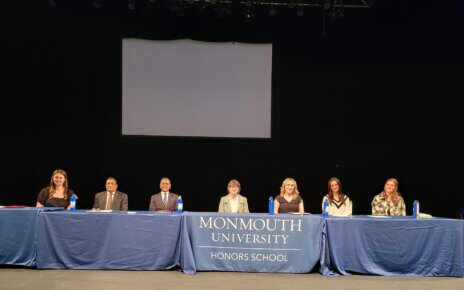President Donald Trump signed an executive order that requires colleges to certify that their policies support free speech as a condition of receiving federal research grants, last Thursday, March 21.
The directive would bar institutions of higher education from receiving federal research grants if the Department of Education decides they do not “avoid creating environments that stifle competing perspectives,” according to the president’s order. The president conditions research funding on “compliance with the First Amendment” and directs federal agencies to ensure that institutions receiving federal research or education grants “promote free inquiry.”
“President Trump’s Executive Order does not appear to impose any new legal obligations on educational institutions with respect to freedom of speech,” explained Paul Dement, the University’s Director of Government and Community Relations. “It seems to just emphasize that institutions receiving certain federal research and education grants must comply with existing federal law.”
Dement continued, “It appears that private institutions will remain entitled to establish their own free speech policies, but with heightened federal pressure to ensure these policies are being followed.”
According to Dement, the University already ensures that there are varying perspectives and ideologies represented fairly. “In terms of selecting our Public Servant-in-Residence, we make sure we have varying perspectives with both sides of the aisle represented over time,” he explained.
Through the program, the University has hosted former New Jersey Governors Thomas Kean and Christine Todd Whitman, who were both Republicans, as well as Governors Brendan Byrne and James Florio, who were both Democrats.
“When we have campaign-related speakers to campus, we always invite their opponent for a visit as well,” Dement added.
During the signing ceremony at the White House, Trump specifically targeted “professors and power structures” that keep young Americans from “challenging rigid far-left ideology,” arguing that many universities have become “increasingly hostile” to free speech.
Many critics of the executive order view it as a ploy to keep ground with Trump’s voting base. The president promised earlier this month at the Conservative Political Action Conference (CPAC) that he would do something about the political climate on “liberal college campuses.”
“I’m a John Stuart Mill On Liberty kind of guy so I support anything that promotes free speech on college campuses,” said Joe Patten, Ph.D., an adviser to the University’s Political Science Club and an associate professor of political science.
Patten noted that while some critics call the executive order a symbolic political gesture to appeal to Trump’s base, others believe it will effectively push back against college campuses that disinvite controversial figures from speaking or that shy away from all forms of political speech.
“Politically active students can benefit by inviting controversial speakers and then use the executive order against administrators who might otherwise try to deny the student’s request to host political events,” Patten explained.
Eleanor Novek, Ph.D., a professor of journalism, noted that speech can be sometimes be constructive or destructive. “And when some forms of speech are found to be harmful, society regulates or forbids them,” she said. “The First Amendment provides for freedom of speech, but this freedom is not absolute. Speech has consequences.”
Novek said that universities are places wherein conflicting ideas and ideologies come together. “Students are exposed to people and ideas they haven’t encountered before. They have more independence than they had back home, with the opportunities and challenges that brings,” she said.
“It is a complicated balance [between freedom and censoring harmful speech] and sometimes there may have been overreactions, raising accusations of censorship,” Novek explained. “The controversy around some efforts to limit harmful speech has attracted the attention of vocal groups trying to get unpopular ideas out there, particularly the alt-right.”
Richard Spencer, a leader of the torch-wielding white supremacist rally at the University of Virginia that left three people dead in 2017, was allowed to speak at the University of Florida last year, despite concerns by United Faculty of Florida members that Spencer’s supporters would target and endanger marginalized students.
“Although, I strongly agree with freedom of speech and the idea that all campuses, including private colleges, allow and promote freedom of speech, I believe President Trump’s executive order isn’t intended to really strengthen that argument,” said Marina Vujnovic, Ph.D., an associate professor of communication and journalism. “Rather it is designed to punish those campuses that would like to draw a line between freedom of speech and providing platform for groups and individuals that promote hate and intolerance, like white supremacists.”
Vujnovic noted, “Don’t we also have a right to say which speech is not about freedom of expressing ideas but rather a way to preclude discussion and civil discourse? Some speech is designed with a goal to oppress rather than allow freedom. I believe that’s in the core of this issue.”
Landon Myers, a senior political science student, believes that universities should allow students to invite anymore to speak about anything, without involvement on behalf of the institution unless it is to ensure safety of an event. “This approach keeps the university apolitical while also supporting free speech, the only way for the university to maintain government funding,” he said.



